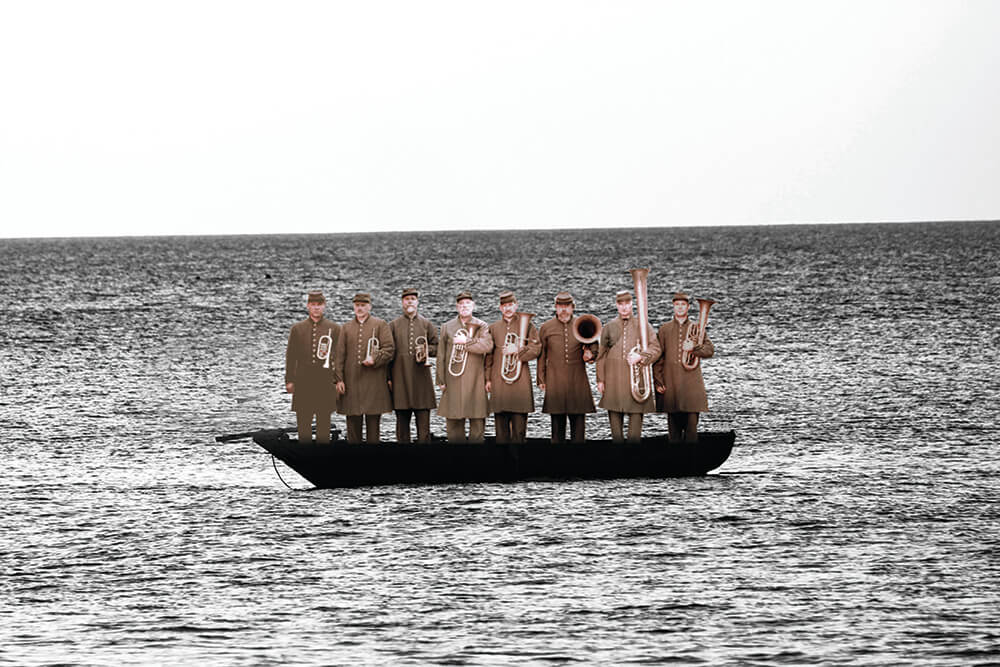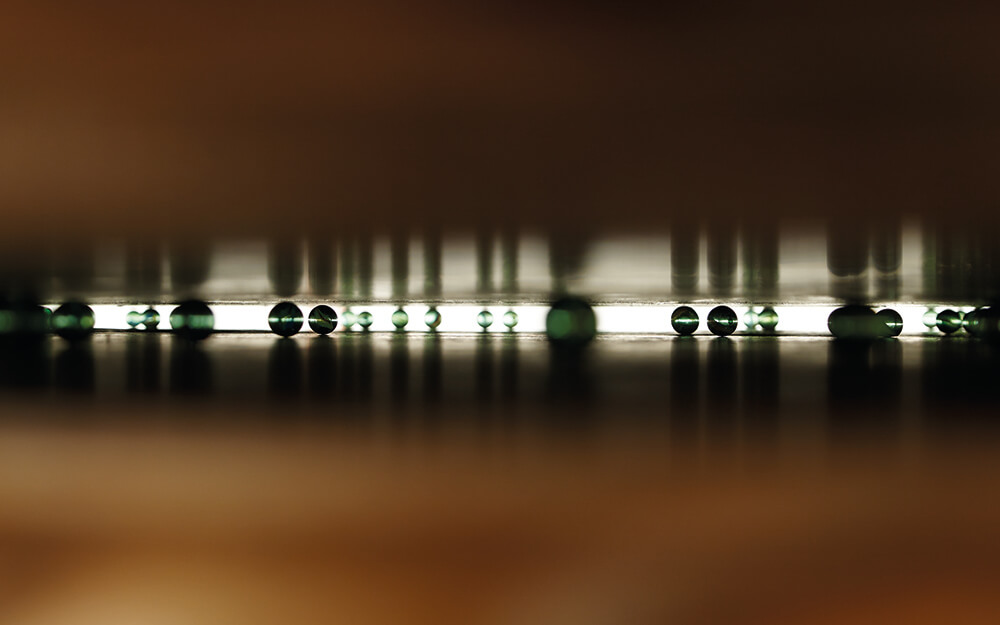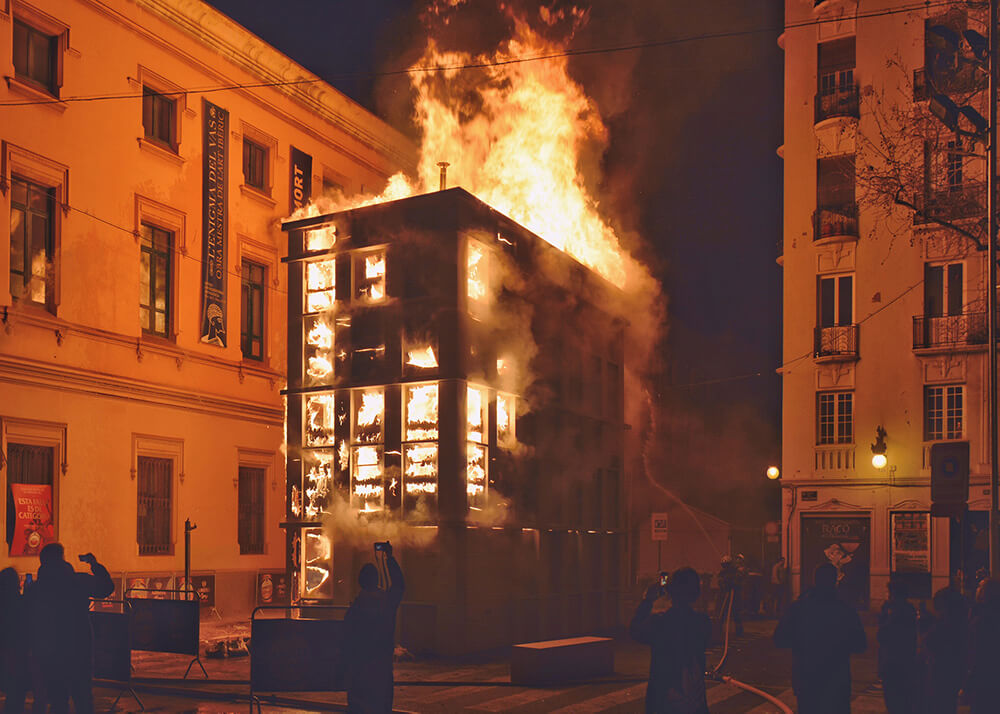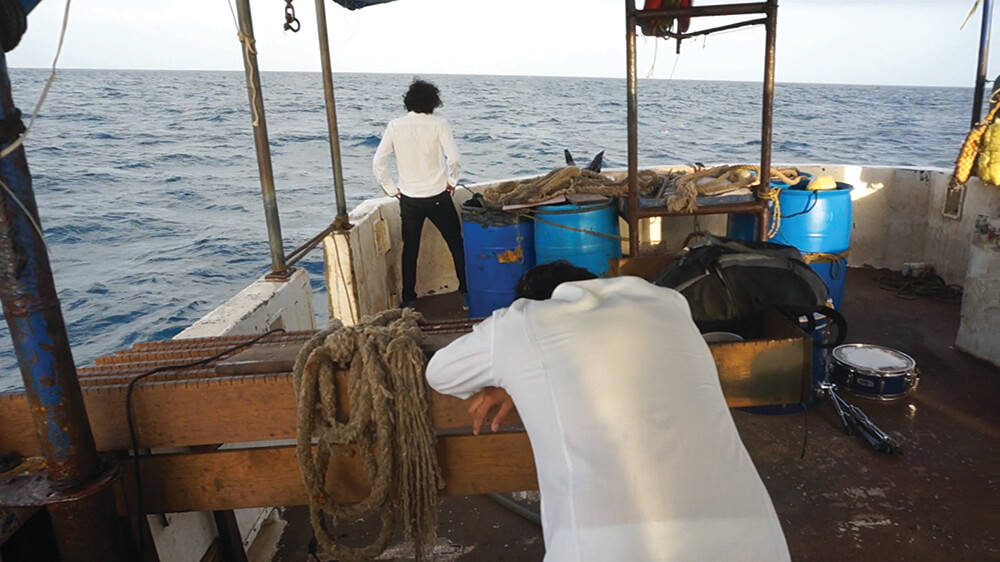
Art and science have always been enemies of comfort
Interview with Fermín Jiménez Landa
Article by Maritima01
Fermín Jiménez Landa works with different languages - drawing, photography, installation or video – to investigate everyday approaches that he extracts from the daily routines of public and social space, basically the street and the Internet. An euphoric illusionism devoid of all power that, from the productive use of the absurd, the enthusiastic precariousness (which is not naive) and the overcoming of the normative, proposes a work defined by a disbelieving and joking conceptualism that focuses its attention on the ability to influence micropolitics of art. Or, to put it another way, his work consciously forces the ridiculous under the parodic and antiheroic mission of generating temporary fissures in our rhythms of life and thus altering what we believed to be safe.
What is the main idea in your creative process and / or research? How do you get there?
There is no specific idea that runs through my work. There is a more or less stable attitude towards life and towards art. There is a vision of the world as an absurd and fragmentary place and perhaps what I have been doing all these years is looking for the sometimes impossible links between the different layers of life: everyday life, physics, politics, humor, history , the minuscule, leisure, work …
Video and photos
Tell us about your studio, where and how do you work?
I work anywhere. For the type of work I do I have dispensed the classical studio. Sometimes my job is to take a trip, put on a concert at sea, put together two tiny objects or a great architectural intervention. I work a lot for projects and I usually formalize almost in the room. Or from the photographic laboratory directly to the exhibition. My studio is my home, but it can be the sofa, the living room or the balcony. My studio is the bars, the queue of the fish shop, a street bench… I work a lot with notebooks, with my laptop and with my phone. Before it was funny, now it sounds too contemporary.
What is your opinion about the importance of dialogue between scientists and artists? Why it is necessary?
The meeting of the poetic and scientific research is a meeting of ways of understanding the world that can enrich thought. Keeping one foot on certainty and uncertainty, on rigidity and plasticity, the poetic and the exact, can lead to unexpected conclusions from the comfort of both disciplines. Art and science, in fact, have always been enemies of comfort. At their core is constantly questioning themselves and that’s why – among other things – I think they are predisposed to understand each other.
Could you tell us some of the most memorable stories about creating your projects?
I have no idea what my most interesting project is. It is true that El Nadador has been more successful than others. It is based on the short story and film of the same name in which the protagonist, being in the pool of some friends, realizes that there is a line of pools back to his house and decides to swim back. I did a remake, applying new mapping technologies. I located with the satellite view all the pools that crossed Spain in a straight line from the southern tip to the pool of my parents, practically in the extreme north and I crossed Spain swimming from pool to pool, knocking on the door of strangers and asking me to They will let you in to cross your pool. The result was an action of many days documented in a video, an installation, drawings, two publications, etc.
Action, video.
Installation view
What artistic project would you like to carry out in collaboration with scientists in the near future?
I am starting to investigate a species of fungus that kidnaps the nervous system of a type of jungle ants in Thailand and practically turns them into zombies, half ant half fungus, until the fungus part eventually dominates the ant part . The ant’s body helps the fungus to reproduce and for some unknown reason, they always die at noon. There is some very dark tale, Dada history and very interesting fusion of species. I find this fact coldly described by zoologists very poetic and terrible.
In which project are you working around ecology or the Mediterranean environment? Why is it relevant?
I am linking various circumstances that are geographically linked to the Greek island of Kalymnos and to a small coastal town in Provence, inhabited by descendants of Kalymnos. The island was the world center for sponge fishing, something that has made them equally rich and unhappy. I intend to investigate the strange nature of sponges, animals considered until relatively recently vegetable, and relate it to the problem of extractivism, maritime ecology, the ancient Greek dances that represent decompression sickness, weight and lightness, etc … Everything from the freedom, humor and media malleability.
Photography.
Would you be interested in establishing a dialogue with other contemporary artists / scientists? If any, why?
I am always interested in dialogue with my colleagues. Attentive work to what others do. I take notes, write down their ways of thinking, I copy, photocopy, sample. Originality does not exist, culture is transmission.
What do you think of the quarantine measures? Are they really going to affect the state of the environment or is it impossible in such a short time?
Well, the results in this short time are overwhelming and this gives a shine of hope. But I fear that the bosses, the big businessmen, are going to try to return to the abnormal normality as soon as they can. But it might be impossible even for them this time.
Is it possible that the virus is a product of high pollution and climate change?
I’m a little embarrassed to answer this, my opinion is anyone’s, the crossing of several hasty readings these days. It may be that it is the fruit of those destructive capitalism policies; There is a lot of talk about macro-farms in China in fatal relation to the destruction of wildlife habitat as a possible origin. On the other hand, the link between pollution and mortality rate is also written. But I am another disoriented reader on the internet.
Any comment on the current situation? What do you think about virtual exhibition exploration, what are the advantages and disadvantages of this type of experience?
I find it a wonderful palliative. Nothing else. Art and culture in general are saving us from quarantine. But what I liked least about my previous life was spending so much time in front of the screen. Now this allows us to leave the house in some way, continue knowing things, thinking, discovering … but there are also the books, the catalogs that are found on the shelves and the view from the balconies. On the other hand, I am very concerned about the precariousness of the artists (well, that of everyone, frankly). A lot of content is being released on the internet but nobody thinks that the artists live on our work. If we do not think about the artists’ economy, we will sink and when this is over, only a macdonalized and blockbusterized culture will remain .











